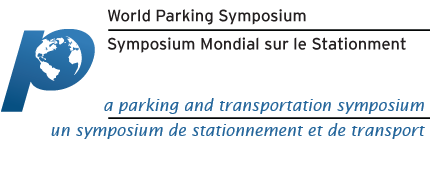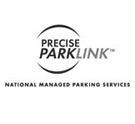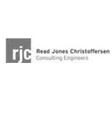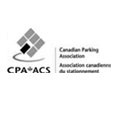WORLD PARKING SYMPOSIUM X
Loading the Technology Slingshot
How will the Comprehensive Deployment of Modern Technologies Change the Global Parking Equation?
Simon Fraser University,
Vancouver, Canada
June 26 to June 29, 2016
SUNDAY, JUNE 26
Delta Vancouver Suites, Innes Thompson Room
1800 - 1830
Welcome, Introduction
Maurice Anderson
, Chair, Canadian Parking Foundation
1830 - 1930
Keynote Speaker
Larry Beasley
Distinguished Practice Professor of Planning,
University of British Columbia;
Principal of Beasley and Associates
Larry Beasley will welcome delegates to Vancouver by telling the story of its transformation into one of the world's most liveable cities. He will explain the principles that have shaped one of North America's most counter-intuitive cities and, using his own photography, he will show delegates where they can go to see the new city at its best. He will talk about the city's "living first" strategy for Downtown, it's shift in travel mode preferences, and it's focus on urban consumers. Referencing his recent book, "Ecodesign for Cities and Suburbs", he will talk about the suburban changes that have echoed out from the city centre. He will then zero in on the unique parking opportunities and challenges this represents for Vancouver and some of the creative ideas that are now coming into the parking discussion.
Larry Beasley is the retired Chief Planner for the City of Vancouver. He is now the founding principal of Beasley and Associates, an international planning and urban design consultancy and the “Distinguished Practice Professor of Planning” at the University of British Columbia. He sits on the Board of TransLink, British Columbia’s integrated transportation agency. He is a Registered Professional Planner in Canada.
After more than thirty years of civic service in which he led the planning and development management initiatives to transform Vancouver into a world model for contemporary sustainable and liveable cities, Larry Beasley now teaches and advises on urbanism around the world. He is Senior Advisor on Urban Design in Dallas, Texas, where he founded their Urban Design Studio. He is a member of the International Economic Development Advisory Board of Rotterdam in The Netherlands. Through selected projects, he continues his long service as the Special Advisor on City Planning to the Government of Abu Dhabi in the United Arab Emirates where he founded the Urban Planning Council, one of the most progressive planning agencies in the Middle East, and led the design of a number of cities and towns, including a new national capital. He has just retired as long-standing chair of the ‘National Advisory Committee on Planning, Design and Realty’ of Ottawa’s National Capital Commission. For several years, he was vice-president of a major Canadian development company, Aquilini Development, managing projects across Canada. Recent notable work includes: completion of an award-winning plan for the expansion of Moscow in Russia, including the design of a new national government precinct; completion of an influential strategic organizational plan for the Toronto Planning Department; curation of an international design competition in Dallas for the integration of downtown and its river; redesign of a freeway link into an elegant gracious parkway, also in Dallas; and providing ongoing advice to the Nordic Built Cities Challenge in Scandinavia.
Initially studying architecture, Larry Beasley has Degrees in Geography and Political Science (BA) and Planning (MA). He has also been awarded two Honorary Doctorate Degrees (Hon LLD), from Simon Fraser University and Dalhousie University. He is a Fellow of the Canadian Institute of Planners, an Honorary Member of the Canadian Society of Landscape Architects and has been recognized as an “Advocate for Architecture” by the Royal Architectural Institute of Canada. In 2007, he received the Kevin Lynch Prize from the Massachusetts Institute of Technology. He has recently received the Applied Sciences Dean’s Medal of Distinction at the University of British Columbia. He is a Fellow of the Dallas Institute and sits on the Board of the Canadian Urban Institute.
Larry Beasley is a Member of the Order of Canada, the nation’s highest civilian honour for lifetime achievement. In recognition of his national and international service, he has also received the Queen Elizabeth II Diamond Jubilee Medal.
"Ecodesign for Cities and Suburbs", the new book by Larry Beasley and Jonathan Barnett, is now available from Island Press.
1930 - 2130 Welcome Reception
MONDAY, JUNE 27
Simon Fraser University, Harbour Centre, Upper Concourse, Sauder Industries Policy Room 2270
0800 Walk to Simon Fraser University, Downtown Campus. If you are staying at the Delta Vancouver Suites, it is directly across the street from the University. A walking map will be provided.
0800 - 0830 Coffee
0830 - 0915
Transportation Demand Modeling: Better Options Through Technological Convergence?
David Harkness
Manager - Parking Services
City of Surrey, British Columbia, Canada
Th is paper looks at traditional and widely used techniques for transportation demand modeling that are rooted in the 1960’s and how a convergence of technologies over the past 3 years now offers drastic improvements in accuracy, speed of data collection, and interpretation /accessibility of findings. It provides a scan of current transportation demand modeling processes and their inherent flaws, but which are still relied upon for major transportation projects. The paper shows how remarkable advances and convergence in GIS, personal data gathering devices, vehicle based systems, and the mining of Big Data by private data aggregators can provide a highly accurate predictor of transportation demand trends that also factors in human behaviour and preferences.
David Harkness is currently Parking Services Manager with the City of Surrey, soon to be British Columbia's largest city by population and geographic area. He has held leadership positions in a progression of operations management and business development roles, including Canada’s largest private parking management firm, and Vancouver International Airport, where he coordinated and implemented the Canada Line air rail system and the 2010 Winter Olympics transportation plan.
0915 - 1000
Management Paradigm From Parking to Integrated Access Management: The Transformation of America's Parking
L. Dennis Burns, CAPP
Vice President, Kimley Hornand Associates
Phoenix, Arizona, USA
This presentation describes the evolution in parking management over the past decade with an emphasis on how the parking management paradigm has expanded in terms of integrating with the larger community transportation and access management equation. It explores the concept of “integrated access management” as a more holistic approach to addressing community access needs. The presentation evaluates industry changes into terms of “big picture thinking”, explores a “Parking was… Parking is…” comparison and delves into eight key areas illustrating how the parking management paradigm has been shifting.
L. Dennis Burns is a Senior Practice Builder and Regional Vice President for Kimley-Horn and Associates, Inc. and has over 30 years of parking operations, management and consulting experience. In the past several years, Mr. Burns has lead national and international research and analysis efforts in the areas of parking system strategic planning, “smart parking” system development, innovative parking district development models, parking and transportation program integration and urban space management concepts.
1000 - 1015 Break
1015 - 1100
Pay by Phone Technologies: How Successful Are They?
Nathan Berry
RVP Sales, Passport, Inc.
Charlotte, North Carolina, USA
Pay by phone technology isn’t going anywhere. With the ability to utilize smartphones to pay, manage, extend parking, and even leverage citation management platforms, the technology is seeing near 50% utilization in Chicago, DC, and Vancouver. Its successful implementations and simple functionality have proven that it’s just the beginning of pay by phone technology. When vendors make it simple for drivers to park, parking revenue increases and in turn, the number of written citations decreases. This is just the beginning of success for the technology. As the industry utilizes real time data, continued innovation is on the horizon.
Nathan Berry serves as RVP of Regional Sales for Passport. Nathan works everyday alongside current and prospective clients to discover their parking needs and develop tools to best accommodate those technology needs. Nathan has helped develop one of the most dynamic sales teams in the industry, revolutionizing the way we meet, communicate and develop solutions with clients. Nathan speaks regularly at Transportation conferences such as American Public Transportation Association, Canadian Parking Association, California Public Parking Association, Pacific Intermountain Parking & Transportation Association, and the Parking association of Georgia. Nathan is an ordained minister and speaks regularly at one of the fastest growing churches in the South East. Nathan received his bachelors from the Iowa State University School of Business and received his M. Div from Wake Forest University .
1100 - 1145
How
not
to implement Pay Parking in a municipality: A case study
Jim Watts
CEO, FastPark,
Resort Municipality of Whistler, British Columbia, Canada
Jim Watts, a private parking operator, had a front row seat while the Resort Municipality of Whistler expanded a user pay parking system. A community revolt ensued, resulting in a 100% change of the elected council. As a member of a volunteer transportation committee, Jim sounded the alarm bells when he saw history repeating. Jim will present a check list on how not to implement pay parking, and the dangers of ignoring your parking professionals.
Jim Watts is the CEO of FastPark, a private parking operator and equipment and technology specialist based in Whistler BC. Jim is also a member of Clayton Hill Associates, specializing in technologies including ALPR for parking studies.
1145 - 1300 Lunch
1300 - 1345
A Residential Parking Strategy for Vancouver’s West End
Eric Mital
Manager, Parking Management Branch, City of Vancouver
Vancouver, Canada
Vancouver’s West End is a vibrant, diverse, walkable, and densely populated community surrounded by world-class parks and beaches, as well as Vancouver’s downtown and Central Business District. It comprises 204 hectares, making up 35% of the downtown peninsula (not including Stanley Park). There are 112 city blocks in the West End. The community has around 45,000 residents, 23,000 jobs, and millions of annual visitors.
Parking in the West End is notoriously hard to find and has been a cause of frustration for residents and visitors for decades. The recently approved West End Community Plan directs staff to develop a comprehensive plan to respond to these long standing problems. This plan is in its final phase of public engagement and will include a strategy for getting to market-based parking permit pricing, rebalancing an over-subscribed permit system and making better use of existing parking supply on streets and in buildings. Through data analysis and creative approaches to market-based pricing, the City hopes to end the “cruising for parking” that has become synonymous with the West End neighbourhood.
Eric Mital leads the City of Vancouver’s Parking Management Branch, which is responsible for Vancouver’s on-street parking programs and off-street parking policy for new development. Eric is a transportation engineer with expertise in on-street parking policy, car share, parking technology and land development. Prior to joining the Parking Management Branch, Eric helped to deliver the City’s 2010 Olympic Transportation Plan.
1345 - 1430
Technology Changes Society; The Effects on Parking
Sjoerd Stienstra
Stienstra Adviesbureau stedelijk verkeer BV
Heiloo, The Netherlands
Technological changes have a direct effect on parking (ie. in the search for a parking-space, enforcement, etc). Indirect effects may be even larger, and may lead to fundamental changes in the way how and where we park in the future, and how parking will be organized.
As an example, modern technology allows a lot of work to be done independently and remotely from where and when the work was done; in this case, business offices lose (part of) their significance as workplaces. This will have consequences on parking demand. The same applies to the way shopping will be done in future, and many more human activities. The urban society will be organized differently. This requires rethinking future parking management.
Sjoerd Stienstra is an internationally recognised specialist in the field of urban-traffic in all its facets (including parking), as well as city-center development since 1974. His activities at present are focused on expertise-based consultancy, fundamental research and teaching.
1430 - 1445 Break
1445 - 1530
Driving Parking Supply Down - the Key to Successful Urban Development
Ralph Bond
Executive Chairman, BA Consulting Group
Toronto, Ontario, Canada
As cities continue to grow and intensify in terms of density, maintaining the right balance between parking demand and supply is critical to the successful development of urban core areas and nodes. Sometimes a shortage of parking is a good thing!
Ralph will illustrate the challenges and opportunities associated with strategic parking supply management by referring to several case studies including an update on the evolution of the Mississauga City Centre from a suburban town centre into a mixed use downtown core area for a large City (first presented at WPS VI in 2007). Examples from downtown areas in smaller cities will also be discussed.
Ralph Bond
is an expert in mixed-use intensification developments and shopping centres, having worked on over 300 such projects across Canada and internationally. Ralph leads BA Group's parking planning practice, where he enjoys producing strategic action plans for downtown areas, as well as financial feasibility, operational planning, and functional design studies for parking systems and facilities. He has recently completed several projects which include the integration of parking, transportation demand management, and transit strategies.
Ralph has been actively involved with the Canadian Parking Association (CPA) for many years, serving as a board member, treasurer, and president. He is also an active board member of the Association for Commuter Transportation (ACT), Canada’s new TDM organization. Ralph has made numerous presentations regarding the subject of parking planning and design and transportation demand management.
1530 - 1615
Park and Ride - Australian experience and lessons learnt
George Brown
Principal Consultant, Clayton Hill Associates
Swanbourne, WA, Australia
In Australia over the last 20 years park and ride has been considerably expanded. It is seen by decision makers as a way to attract car users to public transport for at least a part of their journeys to major activity centres, especially to Central Business Districts. Is this belief justified? The development of park and ride can conflict with other possible land uses and more generally urban development goals such as transit orientated development or the development of new urban activity centres across an urban region.
This presentation gives a brief overview of park and ride in four major Australian cities with populations from 2 to 5 million and seeks to identify and comment on issues, trends and lessons learnt.
George Brown is a transport planner who recently has moved from government to become an independent consultant in parking policy and strategy. George came to parking planning and policy when he was tasked with a major role in development and implementation of a new approach to parking in his home city of Perth, Western Australia, in a the mid 1990s. He has contributed to policy in the areas of transport and the environment, land use/transport interaction and parking management. He has a strong professional interest in sustainability and transport. And he has written and presented papers on parking policy, parking tax and transport policy at WPS and other international forums.
1615 - 1700
Panel: The Technology Slingshot
Moderator
:
David Hill
,
Clayton Hill Associates, Calgary, Alberta
Panelists
:
Laurens Eckelboom
,
Parkmobile
Thomas Hoenacker
,
Cleverciti Systems
David Harkness
,
City of Surrey
1700 Return to the hotel
Evening Free
A list of restaurant suggestions will be available and delegates may sign up at the hospitality desk.
TUESDAY, JUNE 28
Simon Fraser University, Harbour Centre, Upper Concourse, Sauder Industries Policy Room 2270
0800 Walk to Simon Fraser University, Downtown Campus
0800 - 0830 Coffee
0830 - 0915
Data vs. Luck - Cleverciti's Smart Parking Solution
Jan Schulte
Head of International Business Development, Cleverciti Systems GmbH
Starnberg, Germany
The search for a parking space is one of the largest global time-wasters in the mobile age. Motorists in Paris, for example, spend 3 years of their lives finding a parking space. In Germany there are about 50 million registered cars claiming a parking space area of 1,500 square meters daily. Most valuable land in inner cities is reserved for cars. But after a frustrating search for a parking space the payment behaviour of motorists falls by the way side. "Service instead of punishment - digital data rather than luck" – Cleverciti systems aims to make parking space management intelligent and efficient and simultaneously reduce CO2 and NOx emissions, thereby increasing the quality of life of motorists and citizens.
Jan Schulte is Cleverciti’s Head of International Business Development. Jan has 10+ years international sales and management experience with companies like Amazon, Digital River and Flixmedia, in the UK and Germany. He holds a Masters Degree in Economics from the University of Lugano, Switzerland.
0915 - 1000
How Urban Parking Affects Traffic Performance on Urban Networks
Jin Cao
Ph.D. student of research group Traffic Engineering (SVT), Institute for Transport Planning and Systems (IVT)
Zürich, Switzerland
The urban parking and the urban traffic systems are essential components of the overall urban transportation structure. The short-term interactions between these two systems can be highly significant and influential to their individual performance. The urban parking system, for example, can affect the searching-for-parking traffic, influencing not only overall travel speeds in the network (traffic performance), but also total driven distance (environmental conditions). In turn, the traffic performance can also affect the time drivers spend searching for parking, and ultimately, parking usage. In this study, we propose a methodology to model macroscopically such interactions and evaluate their effects on urban congestion.
The model is built on a matrix describing how, over time, vehicles in an urban area transition from one parking-related state to another. With this model it is possible to estimate, based on the traffic and parking demand as well as the parking supply, the amount of vehicles searching for parking, the amount of vehicles driving on the network but not searching for parking, and the amount of vehicles parked at any given time. More importantly, it is also possible to estimate the total (or average) time spent and distance driven within each of these states. Based on that, the model can be used to design and evaluate different parking policies, to improve (or optimize) the performance of both systems. Numerical examples and a case study based on city of Zurich, Switzerland will be given as well.
Jin Cao is a research collaborator in Swiss Federal Institute of Technology (ETH), Zürich, Switzerland. Currently she is on her fourth year of her Ph.D. study, meanwhile, she teaches and conducts research in traffic engineering field. Her main research focuses on the interactions between urban parking system and traffic system.
As a young professional, she has produced several publications and they are accepted by cutting edge transportation journals including "Transportation Research Part B: Methodological", "Journal of Advanced Transportation" and "Transportation Research Record: Journal of the Transportation Research Board". Also, her work has been presented in many international conference such as ISTTT held in Kobe, Japan (The International Symposium on Transportation and Traffic Theory), TRB held in Washington D.C., the U.S. (Annual Meeting - Transportation Research Board), hEART head in Stockholm, Sweden (European Association for Research in Transportation), STRC held in Ascona, Switzerland (Swiss Transport Research Conference), WCTRS that will be held in Shanghai, China (World Conference on Transport Research Society).
1000 - 1015 Break
1015 - 1100
City Centre Parking Demand: A Novel Forecasting Model, Its Applications and Extensions
Jacob Martin
Team Leader – Transport Planning, Cardno
West Perth, WA, Australia
There is a growing recognition that parking is an essential contributor to the function of the transport system. Widely adopted “conservative” parking provisions have resulted in undesirable parking outcomes at significant social, environmental and economic cost. This paper describes a parking demand model developed specifically to assess the requirements for dense mixed-use City Centres. This model extends best-practice by taking into account the synergies between land-use components of the City that arise from both time-of-use and internal trip capture in a way that is independent of external mode share.
Jacob Martin is responsible for traffic and transport analysis in the State of Western Australia, including studies for mixed-use, residential, recreational and commercial developments. He has experience in integrated transport management, sustainable transport and parking studies and has worked on projects and policy for a wide variety of Local and State Government agencies across Australia.
1100 - 1145
Parking as High Tech Product: Practical Experiences of Automated Parking Systems
Dr. Ilja Irmscher
CEO / Managing Director, GIVT mbH
Berlin, Germany
Can automated parking solve parking problems in high-density areas and replace be a gloomy and narrow parking facilities? Or is automated parking just an expensive and failure prone high-tech toy? In many dense urban locations, aboveground space is expected to be kept free for other primary urban and civic uses, with the result that many car parks in general (and automated parking systems in particular) are often built underground. The acceptance of automated parking systems as alternative for conventional parking differs significantly, depending on market and region.
Automated parking systems are user friendly and save floor and building site space. The increased efficiency of floor space use by automated parking systems is primarily due to the replacement of ramps by vertical conveyors and deeper multiplerow arrangements and storage areas that simply adhere to actual vehicle dimensions. These advantages can only be usefully assessed by considering all relevant premises (available cubage and ground, number of parking spaces, vehicle dimensions, traffic connection, transfer cabins, logistical requirements, costs, user comfort features, etc.).
The paper will give a wide overview with some typical examples as well as a critical reflection on the topic.
Dr. Ilja Irmscher is CEO of GIVT mbH, a planning and consulting company for parking and parking systems for many years. He has more than 20 years of experience in the field of conventional, mechanized and automated parking. Dr. Irmscher started his academic career at the University of Dresden as mechanical engineer for the automotive industry and obtained his doctorate in 1982. He lectured and conducted research at the Humboldt University Berlin, and was a professor for vehicle technology.
1145 - 1300 Lunch
1300 - 1345
Where Have the Parkers Gone?
Cristina Lynn
Managing Partner, Parking & Traffic Consultants
Australia
Cities around the world possess a significant stock of off-street car parking spaces, whether in free standing multi-storey structures, underground basements or large expanses of at-grade areas. As the cost of parking increases, technology innovations disrupt our traditional transport concepts and efforts to change travel mode are implemented by various levels of government, there is a risk that some of those spaces will become under utilised if not altogether obsolete.
The paper will discuss what impacts are being felt by owners of parking assets in major CBDs and what alternative uses are some of these unwanted parking spaces being put to (and with what outcomes).
Cristina Lynn is the Managing Partner of Parking & Traffic Consultants, a specialist independent consulting firm operating around Australia out of offices in Sydney and Melbourne.
Cristina is a chartered accountant by profession and has had many years’ experience in auditing, consulting and management. During her more than 13 years in the parking industry she has acquired extensive experience in the areas of parking demand, feasibility studies, equipment reviews and car park strategies for improving the bottom line. Together with her team, Cristina has provided advice to countless car park owners within airports, hospitals, universities, shopping centres, commercial buildings and mixed use developments. Her client list reads like the “Who is Who” of the Australian property industry and no location is too far, with projects also located in South East Asia and even as far away as South America,
Cristina has been active within the parking industry in Australia since 2007 and is currently the President of Parking Australia, the association which represents the interests of all businesses operating within the world of parking. She has also held roles within IPI’s Consultants and International Outreach subcommittees and is also a member of the Parking Consultants Council (NPA). Cristina regularly presents papers at national and international conferences.
1345 - 1430
Connected Parking as a key driver for Connected Networks
Laurens Eckelboom
VP, Head of Business Development, Connected Vehicles, SAP Labs, LLC
Palo Alto, California, U.S.A.
Parking is one of the last industry verticals dealing with fragmentation and friction in the user experience. Connected vehicles, the Internet of Things, and mobile payments alone will not be able to solve these issues. The solution is believed to be in new Connected Networks; centralized marketplaces where service aggregators provide consumers access to multiple vehicle / user journey centric services via participating channels – in a cashless way of course.
Participants will get a better understanding how innovation in the parking industry is driven by the user experience, how connected vehicles will impact the parking industry in the near future, and how transaction standardization in Connected Networks will change the user journey.
Laurens Eckelboom
is an international business development executive who has held senior positions in the financial and technology industries. He played a key role in the launch of mobile payment solutions in Europe and the U.S. where he was one of the founders of Parkmobile. Under his strategic direction the company became an industry leader. Laurens is currently VP, Head of Business Development at SAP Vehicles Network. He is serving on the IPI Board since 2012.
1430 - 1445 Break
1445 - 1530
Deep Cove Parking and Access Study
Floris van Weelderen
, P. Eng., PTOE
Manager, Transportation Planning, MMM Group Limited
Vancouver, British Columbia, Canada
This paper addresses the traffic and parking problems encountered in the idyllic waterfront community of Deep Cove, a once quiet backwater of North Vancouver. Today The Cove experiences a large number of visitors and special events, and numbers continue to increase each year. The District of North Vancouver retained MMM to complete a technical study, meet with residents and businesses, and conduct a public opinion survey. Before identifying solutions, existing conditions needed to be understood. MMM’s study provided technical data regarding traffic and parking around the Cove. This included the collection and analysis of parking metrics which were measured using License Plate Recognition (LPR) technology. Traffic metrics included peak hour traffic volumes, intersection level of service and queuing were also measured. Using data visualization techniques such as “heat maps”, MMM created a complete picture of traffic and parking in Deep Cove. This allowed the District to understand things that work well along with those elements that could be improved.
Floris van Weelderen leads the Transportation Planning business unit for MMM Group's Vancouver office, providing well-reasoned, cost-effective transportation solutions to best serve clients and the public. Since beginning his professional career in 1990, Floris' project management and engineering experience has focused on Transportation Planning and Traffic Engineering projects in Western Canada and Washington State. As Project Manager for the Deep Cove Parking and Access Study, Floris and his team developed an innovative alternative to manual data collection by effectively using LPR technology to gather over 4,000 data sets.
1530 - 1615
TPA Goes Mobile ‐ Designing and Launching Mobile Payments in Toronto
Ann Marie Chung
Senior Policy and Planning Analyst in Strategic Planning, Toronto Parking Authority
Toronto, Ontario, Canada
In March 2015, the Toronto Parking Authority (TPA) introduced Green P Mobile Pay, which enables parkers to pay for parking using their mobile device. Payment by cell phone is an additional channel that provides users with considerable choice and flexibility to augment the traditional payments at on‐street parking machine locations and off‐street parking lots. Currently, the initiative is available at Green P non‐gated (pay‐and‐display) parking lots in Toronto, and the TPA, in consultation with Transportation Services, the Toronto Police Service, Parking Tag Operations ‐ Revenue Services, and Legal Services, is working to expand the program at on‐street parking locations in the City of Toronto. This presentation will detail the strategic choices made in designing the application/ program and lessons learned in the first year of implementation.
Ann Marie Chung is currently the Senior Policy and Planning Analyst in Strategic Planning at the Toronto Parking Authority (TPA). She is a Registered Professional Planner (RPP) and her work focuses on transportation planning, parking studies and municipal policy in Toronto. Prior to joining the TPA, she received her Master's in Environmental Studies (MES) in the Planning Program at York University, specializing in Urban Infrastructure Planning. Ann Marie is the Project Coordinator for the Mobile Payments for Parking project for the Toronto Parking Authority.
1615 - 1700
Panel: New Trends in Strategic Planning
Moderator:
Dennis Burns
,
Kimley-Horn, Phoenix, Arizona
Panelists:
Max Clark
,
Parking and Facilities Director, Capital City Development Corp, Boise, ID USA
Max Clark is the Parking & Facilities Director for Capital City Development Corporation, Boise City’s Urban Redevelopment Agency. Max has been with CCDC since January of 2001. He manages the off-street public parking system in downtown Boise, consisting of 2,500 spaces in 6 garages. In addition to his parking responsibilities, Max maintains the agency’s physical assets and most of the downtown’s streetscapes. Max holds a BA in Political Science from Washington State University; an MPA from the University of Washington; and earned his “Certified Administrator of Public Parking” certificate in June of 2007.
Josh Kavanagh
,
Principal, Mobility Management Associates, (Formerly Director of Transportation and Parking – University of Washington)
Josh Kavanagh is a national leader in the transportation demand management (TDM) and parking fields and a Certified Administrator of Public Parking (CAPP). He collaborates on parking management strategies for downtowns, campuses, and transit facilities. He is a member of IPI’s CAPP-prep faculty, teaching application of parking management strategies to support TDM goals. Josh has addressed domestic and international audiences on a wide variety of topics including managing transportation demand from the supply side; optimizing the use of park and ride facilities; policy development to support park-once, trip-chaining, ridesharing, and carsharing; technology trends in parking; occasional-use parking solutions to support multimodal commuters; and managing parking as an intermodal connection. Josh has expertise in strategy development and deployment, operational oversight, policy advocacy, community engagement, relationship management, and financial management for multiline service organizations with annual budgets up to $53m. Josh also has substantive experience in higher education, government, and non-profit sectors.
Vanessa Solesbee
,
Kimley-Horn, (Former VP of Operations for the Cedar Rapids Downtown Improvement District)
Vanessa Solesbee is a Practice Builder who is passionate about developing strategic parking and access management plans that support people and organizations in creating world-class public spaces. Prior to joining Kimley-Horn, Vanessa was Founder and President of The Solesbee Group, a small firm specializing in public outreach and strategic communi-cations planning for municipal and university parking clients. And she was Vice President of Operations (including parking) for a business improvement district in Cedar Rapids, IA. Vanessa is active in the International Parking Institute where she serves as Parking Matters committee Co-chair. She has a Master’s degree in Communications and has served on numerous Parking Expert Advisory Panels across the country. Vanessa is a keynote speaker at the Parking Australia Conference and Expo this November in Perth, Australia.
Dave Bradford , Director, Parking and Transportation (Confirmation Pending)
1700 Return to hotel
1830 - 2230 Gala Dinner - Teahouse Restaurant, Stanley Park
The Teahouse Restaurant in Vancouver’s Stanley Park will provide an unforgettable dining experience for our Gala Dinner. With towering trees in its backyard and the ocean at its front door, the breathtaking view of English Bay and the North Shore act as a backdrop to the exquisite West Coast cuisine.
Meet in the hotel lobby at 1830 for the short transfer to the Teahouse Restaurant. Guests are welcome to join in this spectacular evening (see registration information for cost).
WEDNESDAY, JUNE 29
Delta Vancouver Suites, Innes Thompson Room
0900
Continental Breakfast
0930 - 1015
WHAT IS THE FUTURE OF WPS?
Moderator:
Lorne Persiko
,
Toronto Parking Authority, Toronto
Twenty years after
WPS I
was held in Banff in
1996
, it is time to discuss the future direction of WPS. We need to determine how WPS will evolve. No doubt it is time for change, but where that change will take us is the question. We have given this much thought but would welcome your input... Why do you attend WPS and other related conferences? What do you want to see? Join us in a round table discussion on the future of WPS and share your ideas and experiences.
1015 - 1045
Conference Summation
Dave Hill
CHA Ltd., Calgary, Canada
1045
Closing Remarks
Maurice Anderson
Chair, Canadian Parking Foundation

 WPS Conference
WPS Conference








